#(and edward is just. anxious agsgd)
Text
!! hello hello, i’m slowly working on replies today bc i can finally Think, but in the meantime, here are some real-life faceclaims for background characters here (bc i doubt i’ll ever find manga ones for them)! i’m Indecisive and never quite settled on how i picture them, and these aren’t the only ones i associate with these characters, but !!! they’re definitely some main ones and they do feel pretty accurate in most ways, specifically as they appear in the following pictures:
CASTOR FLETCHER — tony h.ale
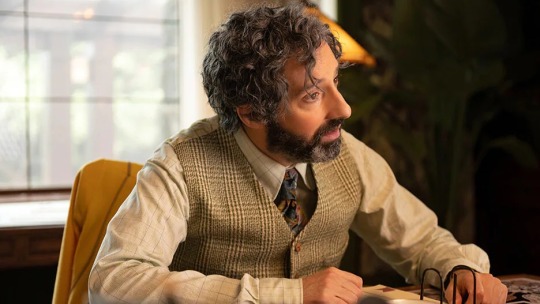
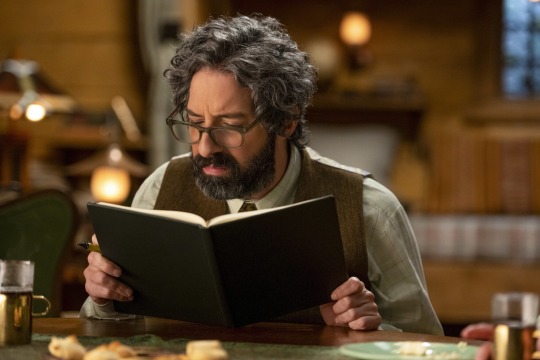
VELANOVA CHAMBERS — l.upita n.yong’o
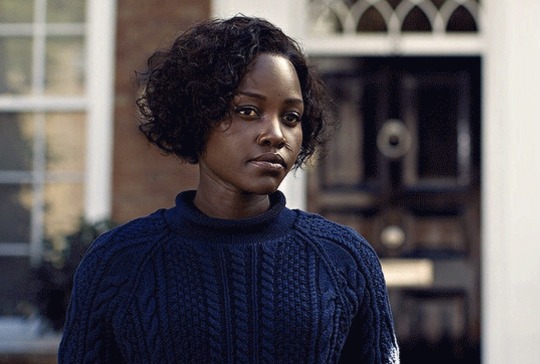

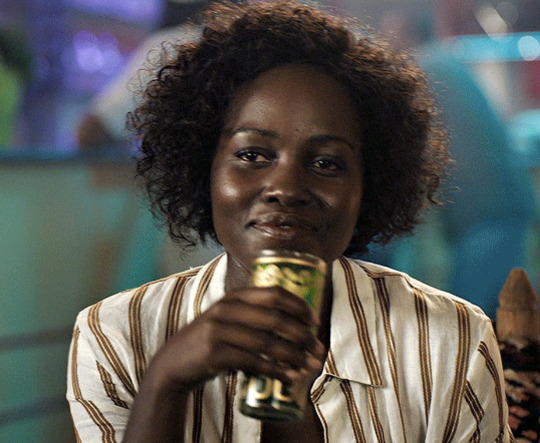
CERISE FONTAINE — sa.mara we.aving (also ni.cole kidman, as she appears in this post!)


EDWARD HUGHES — sh.aun evans
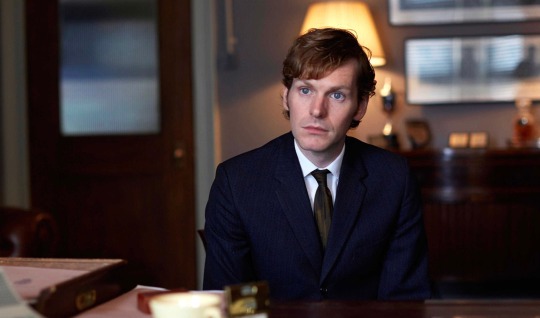
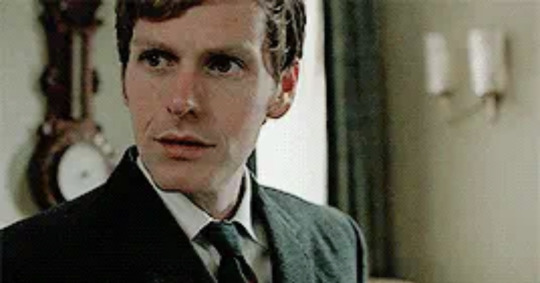
#|☆| headcanons#(i appreciate them your honor!!)#(castor’s appearance in particular is very tricky to pinpoint but…. i think i’m getting there……)#(specifically in these pics and not in others!)#(bc that actor looks Very different in general agsgd)#(i’m pretty certain on vela’s faceclaim tho like !!! them!!!)#(the clothing style fits super well too….)#(and this is one of the faceclaims that reminds me of cerise)#(i rlly associate her with diamonds and champagne so i’m always looking for pics/faceclaims with that Vibe)#(cerise’s hair was originally deep auburn but she dyed it blonde for an acting role and preferred it that way)#(and edward is just. anxious agsgd)#(he’s abt to unfold a dozen new rooms and hallways in a building. it may or may not become a maze <3)#(i’m not super sure on his faceclaim but it does remind me of him!)#(i’ll probably never find real-life faceclaims for the lyles which is very funny to me since they’re the main muses here agsgd)#(it be like that sometimes!!)#|☽| castor ( storyteller )#|☽| vela ( stargazer )#|☽| cerise ( actress )#|☽| edward ( architect )#smoking //#(just in case!)
4 notes
·
View notes
Text
INTERMISSION (edward) — the architect
------
Edward Hughes was not a showman.
Quite the opposite, in fact. He preferred to keep a low profile. He had a quiet, nervous energy. His words caught in his throat and stumbled over each other under too much pressure. His gaze flickered away from attention. The very idea of a spotlight on him sent his heart skipping like a rabbit’s.
So, when he bought the Wetherton Theater — which was on the verge of closing due to poor business — he had no intention of solving its problems.
And yet, the previous owner had handed it over without hesitation. Edward had stammered through an introduction and feigned halfhearted interest in performances. His own acting was dreadful, he knew. He’d never been good at lying. His gaze had stayed fixed on the steam drifting from her mug of tea for most of their conversation. But the woman hadn’t seemed to care. She hadn’t pressed him for details or motivations. She’d seemed eager to be rid of the place. Perhaps she was simply done with it, sick of mediocre shows and weak applause. Perhaps she didn’t mind who owned it as long as it wasn’t her. In any case, Edward wasn’t complaining.
As soon as he paid for the building, he settled all his worldly possessions in his new office. He traveled often and didn’t carry much, so it fit quite nicely. He couldn’t afford to stay anywhere in the town; he’d spent all his money on the theater. This didn’t matter. The theater had more than enough potential.
Evening arrived on his first day as the owner. The curtain closed after the final show, and everyone else left the building. Peace, at last. Without their prying eyes to bother him, Edward breathed a sigh of relief. Now he could explore the true reason he’d bought the place. Now he could begin his true work.
He spread a blueprint over his desk. It detailed the floor plans for the building. His fingers traced the lines he’d studied over and over before buying the theater, each chamber and corridor etched in his memory. He gently unfolded the pieces of paper taped atop the blueprint in certain places. They revealed hand-drawn additions to the architecture, each sketched in impressive detail: new halls joined to the old ones, new rooms, new twists and turns. Perhaps too many. His sketches unfolded enough times to tumble off the sides of the desk. Rustling quietly, they hit the floor and rolled before stopping.
He scanned the paper, his brow creased in focus. He tapped a spot on the original blueprint where a wall aligned with the edge of a sketch. “There,” he whispered. “I’ll start there.” He could always sense the best place to start. As he left his office and walked toward it, it drew him like a magnet.
The spot was a blank wall at the end of a wide hall. A dead end. Undeterred, Edward pressed his hand against the peeling white wallpaper. A tingling feeling spread across his palm, like pins and needles.
“Now,” he murmured. “Let’s see.”
The wall rippled like water. The man pushed slightly. With a drawn-out creak like rusty door hinges, the wall tipped over and fell flat. The hall had gotten longer. And it kept getting longer, unfolding like the paper on the blueprint, splitting along creases to form the same doors and rooms traced in the sketches. It branched into other halls, which also unfolded and split, and so on and so on. A river of dark green rushed over the walls before smoothing out into wallpaper. Tables with flower vases atop them sprang from the floor along the edges of the hall. The building stretched and expanded. The sound of creaking wood and scraping metal echoed through the corridor. Edward had planned out the pipe system as well. The electricity. The furniture.
Everything, really.
It took two minutes for the sounds to settle into silence. Edward exhaled and lowered his hand. A faint lightheadedness washed over him, but it was a pleasant dizziness, bright and sparkling, as bubbly as champagne. He couldn’t help the smile that spread across his face as he gazed down the hall, admiring his own handiwork. The wallpaper and furniture looked just as he’d imagined them. The doors mirrored the precise spacing he’d planned in his mind and sketched onto the paper. It was lovely.
He longed to explore the new halls properly and to ensure his bedroom had arranged itself to his liking, but he wasn’t finished yet. He needed to unfold several more walls to match the other sketches he’d unfolded on the blueprint. Many more twists and turns. Then, it would be a work of architectural art, an embodiment of the potential he’d sensed when he’d first seen the building. Then, he could rest.
And he would puzzle out how to run a theater at some point, he supposed. He wanted to stay in the building and improve his creations for at least a few months before finding another place to unfold. It was an expensive habit, true — and a rather exhausting one at times — but a rewarding one. Joy swept over him to see his sketches take shape. He could shift the building as well, switch the rooms and twist the halls whenever the need arose or inspiration struck. And the exterior of the building never got larger. Only the interior stretched to accommodate his designs.
People often paid him for his work as well, of course. His customers were those who lingered in the right circles to hear about his talent in spatial magic, and who were willing to overlook certain details about his past. He was an architect. Simply a peculiar one. He needed to earn money somehow. But Edward preferred selecting buildings on his own whenever he could. It gave him more creative freedom, and he didn’t have to fumble through socializing as much. Sometimes he offered to work for little payment at all. The satisfaction of having a new project sufficed.
It was one of the only skills that brought him a true sense of confidence. It melted the tension from his shoulders and allowed him to breathe easier. It was like taking the tangle of restlessness and meandering creativity in his mind and pushing it outward into a structure. Transforming it into something beautiful.
Of course, the emotion that gave such vibrance to his designs had an unfortunate side-effect. The walls sometimes unfolded on their own, against his will, quietly and unsteadily, to form mazes when stress overtook him. Hence why he never stayed in one place for long. In the end, it didn’t matter whether he used his magic on purpose in a particular structure. Everything stayed stable for a while, but eventually the walls would only settle if he got far enough away. The building would collapse if he didn’t leave. So, he sought out new buildings. Started somewhere fresh. Left traces of himself behind in walls and floors and labyrinthine halls that defied any semblance of logic.
But for now, he had time. He could enjoy the theater. And there were still dreams to unfurl, so he nudged his worries aside and set out to reach the next wall.
#|☆| stories#|☆| theater#|☽| edward ( architect )#(!!! HELLO I KNOW THIS IS OUT OF THE BLUE BUT)#(i just!!! got a whole bunch of inspiration to write abt the previous theater owner aaaa)#(he’s another background character i got highkey attached to developing)#(i was working on a reply to a question abt the florist)#(and the florist mentioned the person who expanded the back of their shop)#(which was edward! the florist hired him for that one)#(but then my mind got stuck thinking abt edward and hhh)#(so!! yeah!!)#(a very talented architect!!)#(he did Not improve the performances at the theater at all)#(he was simply Not Good at theater stuff)#(even tho he Tried to learn!!)#(by the time vela and castor bought the theater from him things were going Very Poorly in several different ways)#(i appreciate him tho like agsgd he’s rlly out there being an anxious architect)#(he makes me sad when i think abt him too much bc he literally Cannot live in one building for too long)#(but at the same time he’s also just. so funny to me in other ways agsgd)#(someone; talking to him when he was still the owner: so u like theater performances?)#(edward; literally just there bc he thought the building looked pretty and he Needed to make it even prettier: um. definitely yeah)#(edward: my favorite play is *looks at scrawled writing on palm* maclet? hambeth?)#(sir………..)
5 notes
·
View notes